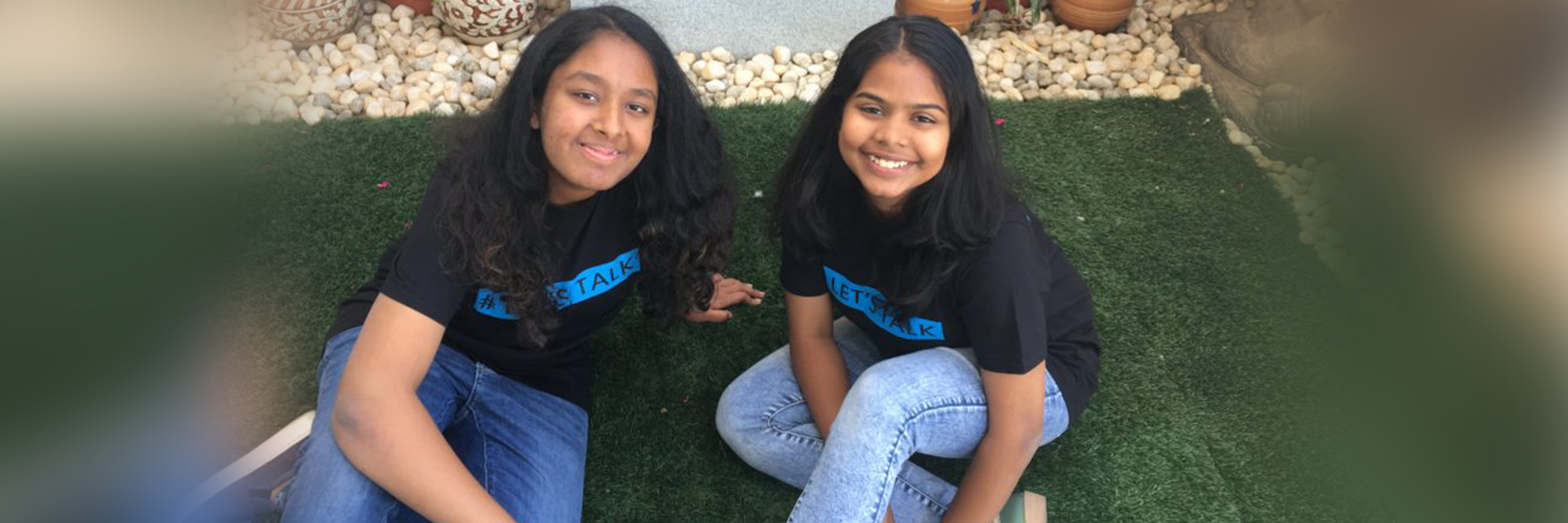(August 23, 2024) “Resilience is the only way to survive your changemaker journey,” says Vidhi Yadav, founder, Beyond the Bounds. “You’re going to feel that things aren’t working – take a break but don’t give up. They will question you, they will question your age, ability, gender and your qualifications. But you just keep going. It’s okay to not be okay but don’t give up.” Her organisation has had over 1000 volunteers since it was founded in 2019, and impacted many more across India, Malaysia and Australia, where she currently lives. Through workshops, awareness programmes and events, Beyond The Bounds address mental health for Gen Z.
In 2022, a World Health Organisation study estimated that one in eight people around the globe suffers from a mental disorder. Indians between the ages of 15 and 24 have the highest suicide rate in India, more or less in keeping with the international rates for the same age group. In India, that accounts for 35 percent of recorded suicides. It propelled Vidhi Yadav to address the problem and found Beyond The Bounds, an organisation that provides advice on mental health and well-being to the increasingly stressed out Gen Z.
“I’m a shy person,” Vidhi says. It’s surprising to hear, all things considered – she’s active in the advocacy scene and the cause she supports through BTB involves interaction and communication by default. “I was very quiet growing up, quite a nerd, actually. I would go to school, come back home and study. My aunt noticed that I was shy, that I had a point of view but wouldn’t speak up. After that, my teachers nurtured me, and I was put into public speaking events, until I went on to win an election and become school captain.” In an interview with Global Indian, she recalls her nervousness in those days, every time she was due on stage. “Over time, I learned how to hide my nervousness. I struggled but once I learned, I became unstoppable.”
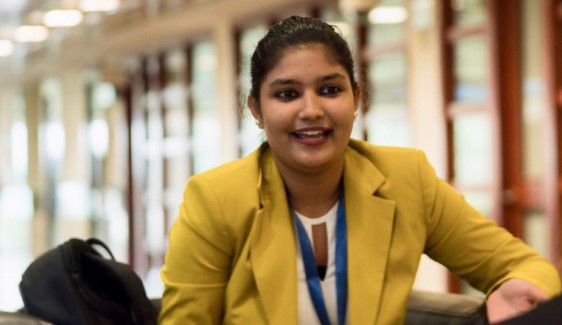
Vidhi Yadav, founder, Beyond The Bounds
Getting past schoolyard bullies
In tenth grade, she encountered her first big pitfall – and this one would transform her life. As board exams approached, she struggled to juggle school work with extra-curricular activities. Her family was always supportive, as were her friends, but still, the anxiety was overwhelming. “My grades slipped, and that was a terrible thing to happen because my school was academically rigorous. I also put on a lot of weight because i was neglecting my mind and body, so I faced body shaming too.”
It was a culture of toxicity that had pervaded into daily life. Nobody questioned the rampant bullying, the bullies couldn’t see the harm they were causing and the victims had nowhere to turn. Vidhi recalls an old classmate, who had just moved back to India from the US after his father lost his job. “He had clinical depression and was on therapy and medication. He was bullied so much, people refused to help him and made fun of his accent.” Although the school had a counsellor, there was no conversation around bullying, or mental health.
In 2018, Vidhi graduated with top grades, earning herself a place at the prestigious D.G. Ruparel College of Arts, Science and Commerce, one of Mumbai’s most critically acclaimed colleges. A year later, in 2019 she began building Beyond The Bounds, holding the organisation’s first event that June. “I decided it was time to stop overthinking my problems and to think of others instead. What about all those who didn’t have support from school or at home? There aren’t many organisations that focus on youth mental health and there are so many myths surrounding the matter.”
Building BTB
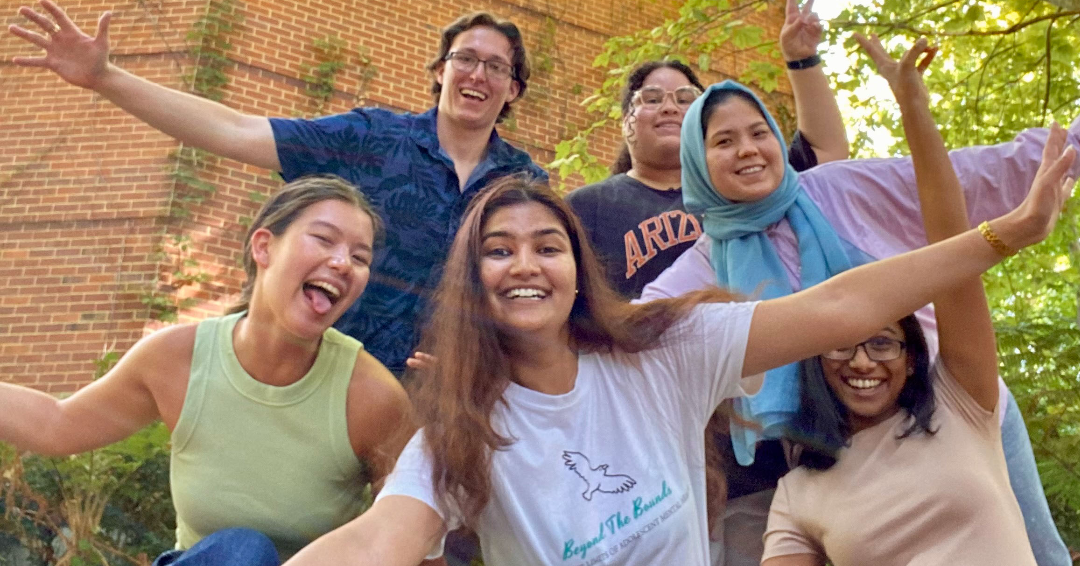

After conversations with counsellors in her college, her Psychology teachers and other mental health organisations, she decided on an advocacy programme. “I was rejected from 50 places,” Vidhi says. “I still remember that number. She was told she was too young, and not qualified enough. “Focus on your studies,” she was told, dismissively. Vidhi even heard things like, “You’re too smart and too pretty to do this kind of work.” Finally, it was her Psychology teacher who came to her aid, connecting her with a counsellor who agreed to help.
As she did her research, Vidhi realized that Gen Z needed help. People weren’t able to find the right support, and were cowed down by societal, relationship and family pressures.” Those who dared to speak up were quickly dissuaded from talking about it. Conversations were slowly starting up on social media, but these were very nascent.
Vidhi began by reaching out to her peers, asking them to volunteer. There, the idea was very well-received. Students looking to enhance their CVs took to the cause, its uniqueness appealed to them. So, every day after class, BTB members would reach out to schools in Mumbai – it often meant visiting them in person. They requested permission to conduct workshops and seminars. “Those are formative years, when the personality develops. That’s where we wanted to extend our efforts,” Vidhi explains. Schools were on board with this, asking Vidhi’s team to conduct workshops on how to manage stress and anxiety for students gearing up for tough competitive exams.
Mental health during the pandemic
A year later, the pandemic hit and the lockdown was imposed. That year transformed society and people suddenly understood the importance of mental health. It was around the time they received their first round of funding from Kids Rights, an organisation in the Netherlands. “We used the funding to expand our online reach, build a website and use technology to conduct our workshops online,” she says.
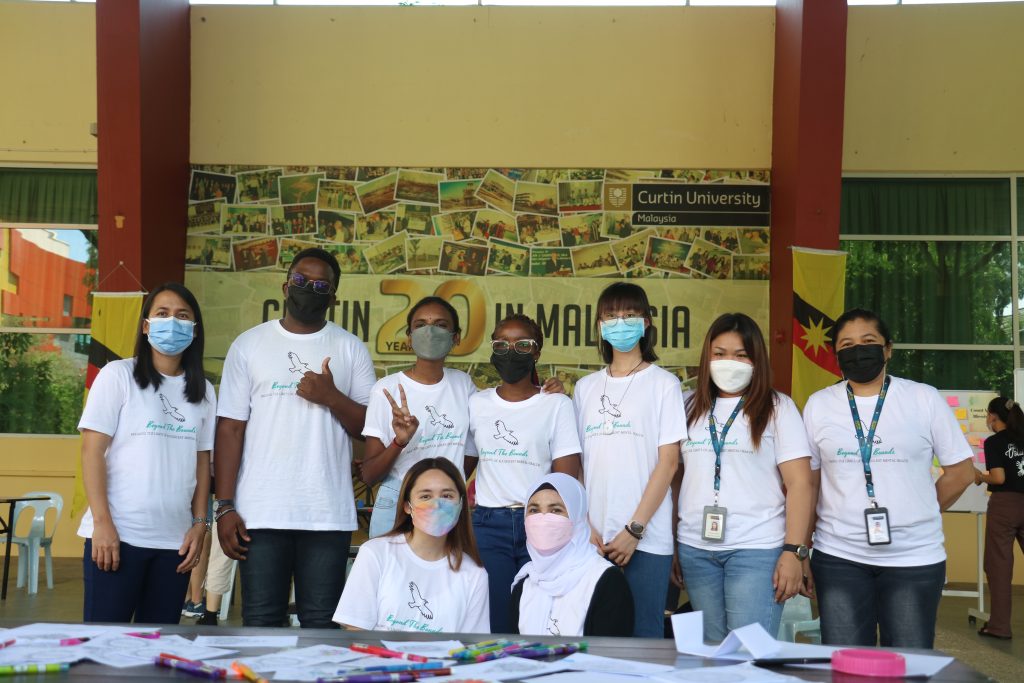

Life wasn’t easy but tech-savvy urban kids had it easier, Vidhi believed. What had become of India’s villages, and the children who lived there? She wanted to explore rural India, and approached another youth organisation, Global Changemakers, asking them to fund an offline programme. That led to the launch of BTB’s Rural India Programme, in November 2020. Three members went to rural Haryana, to conduct a series of workshops there, tiptoeing past Covid-19 restrictions. The first camp was for kids who were due to appear for board exams. The second camp was on self-reliance during the pandemic and was held for women. The third workshop was for men, many of whom had lost their jobs in the heavily agrarian states of Punjab and Haryana.
The experience taught her a valuable lesson. If she had pictured a society weakened by circumstance, she found the opposite. “People told me, the pandemic doesn’t matter. There will always be hardships in life, so you need to be resilient. And you need a family who will support you. These people had a lot to be stressed about but they were content.” These people living quietly in the rural hinterlands understood that life is full of ups and downs, that our ability to deal with it matters most of all. “My grandmother would always tell me that to some people, an idol meant a piece of art. To others, it was about faith. I understood her words after I spent time in these village communities.”
Expanding abroad
As restrictions eased, Vidhi, who was doing her master’s course online through Curtin University, already found there was no mental health club on campus, or in any university in Australia, for that matter. In fact, there wasn’t a single one on any university campus. She started a BTB chapter in Malaysia, where she moved in 2022, to study at their Curtin University campus. “I spent time with advisors, teammates and learned a lot about Malaysian culture through that experience,” she says. When she eventually got to Australia, she began BTB’s operations there too. Her efforts earned her a Curtin Extra Recognition, a very select campus award.
“Our aim is to bridge the gap between students and counselling services,” Vidhi says. “And we want to do this through unconventional events.” This includes a pet therapy session in Malaysia, where they collaborated with an animal shelter and allowed participants to adopt an animal with which they felt a connection. Art therapy, with activities like mindful drawing and painting are also right up their alley. “We try to keep it light-hearted because our academics can be very heavy,” she says.
With over 1000 volunteers so far, BTB has also released a self-help guide, which they released online as a resource to UNHCR. “A student from Kenya reached out to me through Kids Rights and we made the guide accessible to UNHCR and students living in refugee camps in Kenya,” she says. In Indonesia, they did awareness workshops on the negative effects that social media can have on mental health. Vidhi was also chosen to present her work at Act2Impact, an initiative by Harvard University.
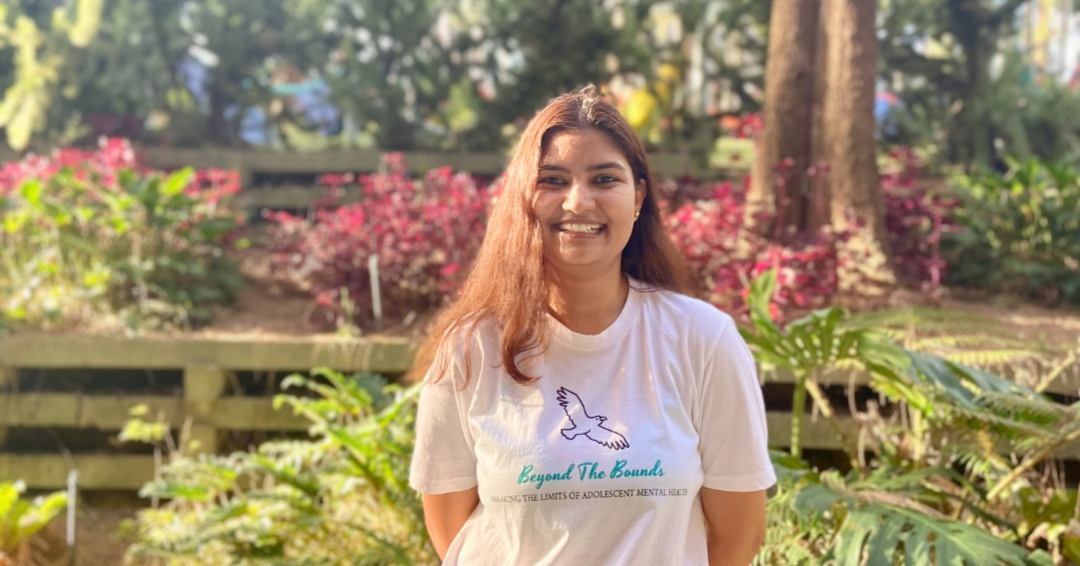

Vidhi’s takeaways for young changemakers:
- “Don’t start a cause just because you’re a wannabe founder,” Vidhi says. “Only do it if you really believe in it.
- Resilience, she believes, is the only way to survive the changemaking journey. People will question your age, ability, gender and qualifications. But you just keep going.
- Understand the meaning of leadership – it’s not about dictating. If you can address a problem and solve it as part of a community, you’re a leader.
- “I’m not a work-life balance person,” Vidhi admits. “But it’s okay to take breaks. After I moved away from home, I learned how important it is to take care of one’s mental and physical health.”
- Finally, she remembers her grandmothers’ words of wisdom through the years. “Always respect people around you. Show courage and kindness, even to those who don’t respect you.”
- Follow Vidhi on LinkedIn


